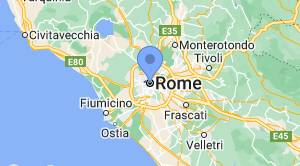
Global Congress on Recycling and Waste Management 2024

Dettagli Aziendali
Event Type
Conferenza, Fiere
Materiali
Vetro, Metallo, Organico, Carta, Plastica, RAEE
Focus
Generale
Ambito
Internazionale
Data Inizio
21 ott 2024
Data Fine
22 ott 2024
Introduzione
The inaugural Global Congress on Recycling and Waste Management was a remarkable testament to the adaptability and innovation in addressing the challenges posed by the current global situation. We are thrilled to announce that preparations are already underway for the Global Congress on Recycling and Waste Management which is in Rome, Italy during October 21-22, 2024 will continue its tradition of providing an invaluable platform for scientists, researchers, and professionals hailing from diverse sectors to converge, exchange knowledge, ideas, and innovative solutions in the realm of environmental sustainability.
The objectives of Recycling Congress 2024, which encompass the exchange of the latest research findings, the dissemination of cutting-edge research methodologies, and the facilitation of international and interdisciplinary collaborations, hold paramount importance in advancing the collective knowledge within these critical fields. The participation of internationally acclaimed speakers and experts from industry partners is poised to enrich the learning experience for attendees.
Recycling Congress 2024 comprehensive two-day agenda, comprising plenary sessions, keynote addresses, educational workshops, interactive panel discussions, and networking opportunities, has been thoughtfully crafted to provide valuable insights and foster connections among participants. The concerted effort to unite eminent academic scientists, researchers, and scholars underscores the conference's dedication to promoting cooperation and the exchange of knowledge.
For those with a keen interest in Waste and Recycling, Waste Management Fields, and Environmental Sustainability, Recycling Congress 2024 presents a golden opportunity to learn from esteemed experts, share research discoveries, and engage with like-minded peers. The conference's commitment to introducing newcomers to the field and showcasing innovative tools and approaches adds an extra layer of allure to this remarkable event.
The objectives of Recycling Congress 2024, which encompass the exchange of the latest research findings, the dissemination of cutting-edge research methodologies, and the facilitation of international and interdisciplinary collaborations, hold paramount importance in advancing the collective knowledge within these critical fields. The participation of internationally acclaimed speakers and experts from industry partners is poised to enrich the learning experience for attendees.
Recycling Congress 2024 comprehensive two-day agenda, comprising plenary sessions, keynote addresses, educational workshops, interactive panel discussions, and networking opportunities, has been thoughtfully crafted to provide valuable insights and foster connections among participants. The concerted effort to unite eminent academic scientists, researchers, and scholars underscores the conference's dedication to promoting cooperation and the exchange of knowledge.
For those with a keen interest in Waste and Recycling, Waste Management Fields, and Environmental Sustainability, Recycling Congress 2024 presents a golden opportunity to learn from esteemed experts, share research discoveries, and engage with like-minded peers. The conference's commitment to introducing newcomers to the field and showcasing innovative tools and approaches adds an extra layer of allure to this remarkable event.
Argomenti Salienti
Scientific Sessions
Key Takeaways
Ambito
Why do you need to attend a Recycling conference?
For Professionals in the Recycling Industry:
• Stay Updated on the Latest Trends and Technologies: Conferences showcase cutting-edge innovations in recycling technology, processing methods, and material recovery, giving you a competitive edge in the industry.
• Network with Industry Leaders and Experts: Connect with potential partners, collaborators, and investors, building valuable relationships that can advance your career and business.
• Learn Best Practices and Improve Efficiency: Discover new approaches to waste management, operational improvements, and cost-reduction strategies, leading to a more sustainable and efficient operation.
• Gain Continuing Education Credits: Many conferences offer continuing education credits for professional certifications, allowing you to maintain your credentials and stay relevant in the field.
• Contribute to the Industry Dialogue: Share your expertise and insights through presentations, workshops, or panel discussions, influencing the future direction of the recycling industry.
For Environmental Activists and Sustainability Advocates:
• Gain Knowledge and Inspiration: Learn about the latest research, policies, and initiatives addressing global waste challenges, fueling your passion and commitment to environmental action.
• Connect with Like-Minded Individuals and Organizations: Build networks with other passionate individuals and organizations working towards a sustainable future, fostering collaboration and amplifying your impact.
• Discover Innovative Solutions and Strategies: Explore cutting-edge recycling technologies, circular economy models, and community engagement approaches, gaining valuable knowledge to implement in your own initiatives.
• Stay Informed about Policy Developments and Advocacy Opportunities: Learn about the latest policy developments and regulatory frameworks impacting the recycling industry, identifying opportunities to advocate for positive change.
• Share Your Ideas and Perspectives: Contribute to the discussion on waste management solutions, shaping the future of sustainable practices and policies.
For Students and Researchers:
• Explore Career Opportunities and Network with Professionals: Build connections with potential employers and mentors within the recycling industry, gaining valuable insights into career paths and professional development opportunities.
• Learn from Leading Experts and Gain New Perspectives: Discover cutting-edge research findings, innovative technologies, and diverse perspectives on waste management, broadening your knowledge and fueling your research interests.
• Develop Your Skills and Expertise: Attend workshops, participate in discussions, and engage in networking opportunities to hone your research skills, communication abilities, and professional development.
• Present Your Research and Gain Recognition: Submit your research findings for poster presentations or talks, sharing your work with a wider audience and gaining valuable feedback from experts.
• Stay Ahead of the Curve in the Field: Keep abreast of the latest advancements and trends in recycling research, preparing you for future opportunities and contributions to the field.
Ultimo Aggiornamento
17 apr 2024
Aggiornare Le Sopraindicate Informazioni
